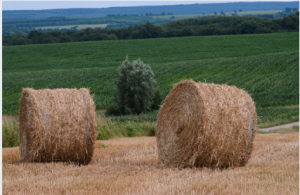A baler uses sisal twine to bind the fibrous material together in a bale. Its tensile strength is between 95 and 325 psi and can be purchased in different colours and lengths. However, it is a small diameter twine. Therefore, the baling process can take several days, requiring a lot of twines. Aside from sisal, baler twine is also used in the textile industry.
 Various colours are available for baler twine, making identification, storage, and processing easier. The polypropylene variety is resistant to most acids and chemicals. It can even be kept wet. Because it is environmentally friendly, polypropylene is an excellent choice for baler twine. It is also a great choice for crop wrapping. It has the added benefit of providing reliable, high-performance knobs. In addition, it is suitable for a variety of uses.
Various colours are available for baler twine, making identification, storage, and processing easier. The polypropylene variety is resistant to most acids and chemicals. It can even be kept wet. Because it is environmentally friendly, polypropylene is an excellent choice for baler twine. It is also a great choice for crop wrapping. It has the added benefit of providing reliable, high-performance knobs. In addition, it is suitable for a variety of uses.
For round baling, sisal is an excellent choice. Its uniformity and strength will reduce machine wear. It is available in a single roll of 20,000 feet. It has a breaking strength of 110 pounds and is made from biodegradable polypropylene. It is a viable option for those who are concerned about the environment.
There are many advantages of using baler twine. It takes up less space in storage and is much easier to handle. Plus, it can be recycled for extra revenue. Some horse ranchers have even started recycling the twine to help support their operations. Unlike bale wire, baler twine is easier to find. However, if you need a specific quantity of bale twine, you will have to wait for weeks or months.
The tensile strength of baler twine varies depending on the type of twine used. Some types of baler twine are rated for a maximum breaking strength of 110 pounds. The twines are made of polypropylene and are UV treated. They are also durable, reducing machine wear. While the original purpose of bales was to transport hay easily, balers are using them to compact waste materials.
While baler twine has been around for centuries, it is still used today for various purposes. It is a common material for a baler and comes in various colours and strengths. It has a tensile strength of 110 pounds and can make a bale. However, if you want to make a bale, it is best to use twines specially designed for baling.
Some baler twine is made of natural fibre. Others are made of manufactured fibres. A high-quality sisal baler twine is ideal for many jobs, including hay and straw. For a wide range of applications, baler twine can be used to bind large and small amounts of material. A quality twine is a vital component in any production. It is also a strong, durable material.